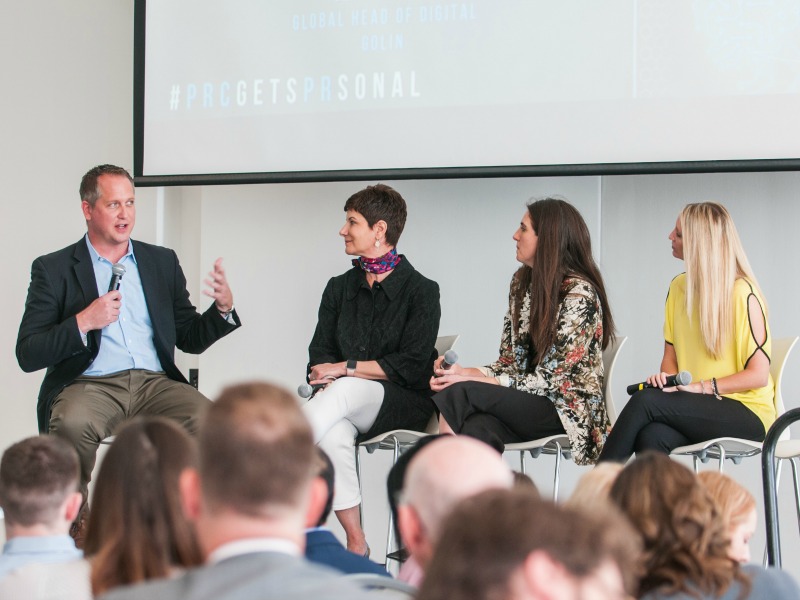Diana Marszalek 22 May 2018 // 12:00PM GMT

CHICAGO — For all the intricacies involved in the personalization of public relations — artificial intelligence, big data and changing consumer expectations among them — marketers say avoiding the “creepy” factor in targeting audiences is one of the few non-negotiables to getting it right.
“It’s really about being transparent about what data you’re collecting, how you’re using it to make their lives better and giving them the opportunity to opt out,” said Lauren Nelson, partner lead at Google, which she says makes all its data-collection information available to users via its user activity hub.
“There’s a line between (using data) for services and advertising that is useful the other side of that is where it becomes creepy and intrusive,” she said, adding that marketers who are opaque or untoward in their use of personal data take a big risk in repelling the very consumers they are targeting. “Cross that line … and you lose trust,” she said.
Nelson was one of a number of panelists who discussed the opportunities and perils facing PR professionals as factors including technology and societal changes are fueling the rise of personalizing marketing campaigns.
While much of the morning event was aimed at providing attendees a better understanding of targeting consumers via new means — AI, analytics and personalized experiences among them — avoiding being “creepy” in doing so was a recurrent theme of the discussions. So was the notion that transparency — i.e. letting consumers know from the outset what data of theirs you want to collect and why — is the singular way to do that.
“You better have a good reason for using that data,” said Dan Mallin, co-founder and managing partner of marketing consultancy Equals 3. “It’s about providing a value to the consumer.”
Mallin said having that data can be a boon to marketers. “If you know who you’re talking to you can use AI to determine the words you can use and if they will resonate with those individuals,” he said.
Whether the PR industry is really equipped at this point to do that, however, was a point of contention in the discussion.
Dan Wagner, CEO of the data science firm Civis Analytics, said that unlike Google, which has been at it for 20 years, the PR industry has neither the technology nor expertise to do so in far-reaching ways, adding that 95% of event attendees should not be using AI other than in very elementary ways.
“You should be focused on very, very basic things: Is your message working, or is it not working,” Wagner said. The industry’s ability to do more is impeded by the fact that there is currently no means for attributing the success of AI-driven campaigns — i.e. which campaigns are the most successful and through which channels — so their value is not measurable. “Nobody has figured out this problem whatsoever,” he said.
Yet, in taking that stance, Wagner stood apart from his fellow panelists. Speakers from a range of organizations — a women’s cancer prevention group, McDonald’s and Chicago sports teams among them — demonstrated ways they are finding success targeting consumers using
“As a nonprofit organization that has used data marketing for a good many years, our reach has been tremendous,” said Katie Thiede, CEO of Bright Pink, which targets young women at risk for breast and ovarian cancer. Marketing tactics have already resulted in nearly a million women using the group’s risk assessment tool, she said. Given the advent of more sophisticated data collection and analytics, the organization expects to broadening its reach through more personalized campaigns, ultimately benefiting the women at risk of the disease.
Lisa Jillson, marketing leader at Arity (Allstate’s tech startup that analyzes driver data to assess risk), however, said the idea of making marketing personal alone is not enough to cut it with consumers.
“I don’t think personalization is the focus. The idea of relevancy is most important,” she said. That means that data should be used first and foremost for determining the relevancy a marketing message has for its targeted consumers — and then crafting it.
“If you have relevant information, it will be personal,” she said.


































.jpg)


















